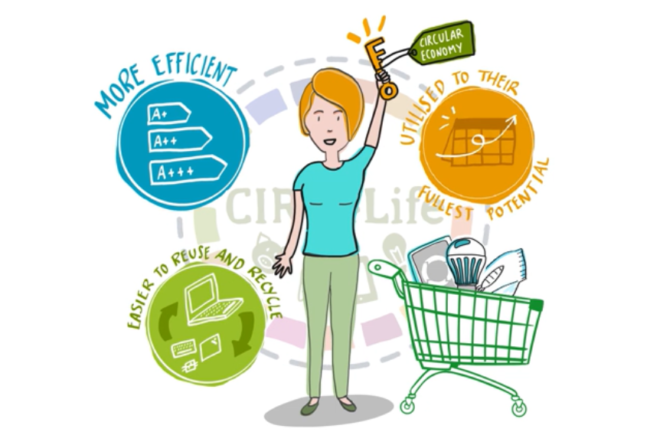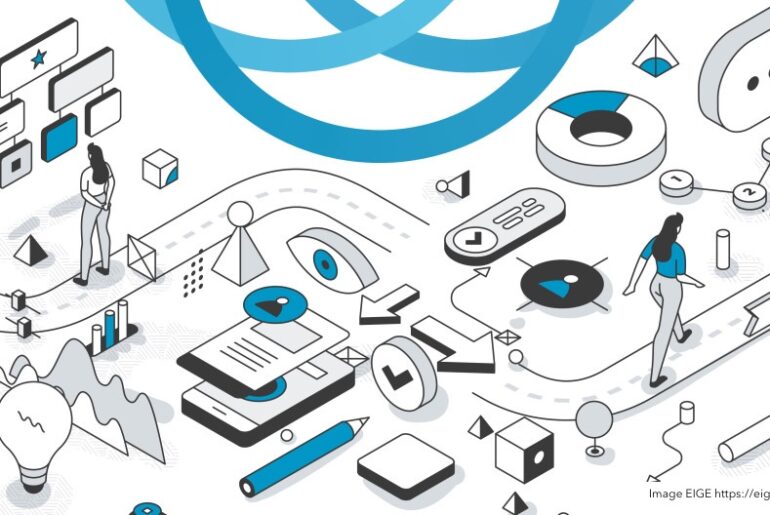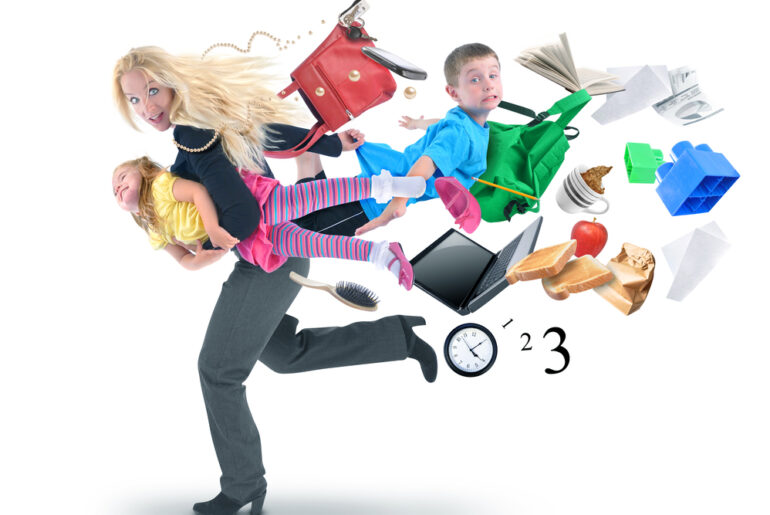How to engage consumers in the circular economy?
14.02.20
As part of #Circ4life, an EU Horizon 2020 Research Project, Make Mothers Matter conducted three consumer surveys in order to uncover how to better engage end-users in the circular economy.

The surveys covered the following topics:
- Reuse and Recycling habits
- The eco-points system (a reward scheme for consumers adopting sustainable practices)
- Sustainable lighting products
The aim of the surveys was to integrate consumer feedback in the development of new product and services with a better environmental impact and make policy recommendations on how to better engage consumers in the circular economy transition. The survey results and recommendations were sent to the European Commission in November 2019.
What did we find?
The analysis of the results was divided between four core domains influencing consumer behaviour: incentives, barriers, drivers and purchasing.
53% of respondents said that they do not need to receive an incentive in order to collect bio-waste separately adding that they would collect it anyway. Surprisingly, financial incentives was not the main driver in motivating consumers to bring their EEE back for collection and recycling. Consideration was given to the fact that survey respondents came from a higher socio-economic background and this was perhaps a less important factor for them. But this created a paradox as respondents in other questions answered that price was one of the most important elements when purchasing food products and second-hand EEE.
Respondents highlighted that the main obstacle to reducing their food waste was the lack of meal planning followed by the size of packaging. As found in a survey previously conducted by MMM1, families demand more time to care for their children. In the reuse and recycling attitudes survey, it can be argued that lack of meal planning is a consequence of the lack of time.
Also, what came up very often in the comments was that the lack of time to sort out or bring EEE to recycling points was an obstacle to reuse or recycle. Therefore, an interesting parallel can be drawn between the lack of time to care for the family and the lack of time to care for the environment. It is therefore important that in order to engage end-users in the circular economy, proposed solutions must consider the economic impact on and the required investment in time, particularly for women.
Convenience is the main driver motivating consumers to recycle EEE, followed by providing valuable information to consumers.
Respondents considered the following factors to be the most important when buying food products: price, seasonal products, type of packaging and use of chemicals. When purchasing EEE, respondents always considered the following components being of the utmost importance: the durability of the device, the durability of the battery, the presence of toxic components and the ease to repair.
[1] MMM Survey conducted in 16 countries and 10 languages with close to 12000 responses about what matters to mothers in Europe in 2011 found out that mothers demand more time with their families and asked for measures to improve this.
Profile of respondents:
For all three surveys, it must be noted that a very large proportion of our respondents (more than 75%) have levels of education equal to or above university education. The majority of respondents were women (60 to 70%).
What MMM recommended:
MMM highlighted that it is crucial that any new circular economy solutions or policies consider the direct economic and social impact and the required investment in time. Indeed, although crucial for the wellbeing of the planet, this investment in time is not recognised. We therefore drew a parallel between this unrecognised work for the environment and the unpaid care work undertaken mainly by mothers or women which is absolutely necessary for the wellbeing of society.
We also recommended to include education on sustainable practices in school curricula or extracurricular activities. Societies need to train and encourage end-users and in particular families, in sustainable practices such as reducing waste, recycling and reuse, eco-friendly habits, use of energy-efficient products, consuming local, sustainable consumption, second hand buying, etc. These will have a multiplying effect as they will transfer this knowledge to the families and communities they live in.
Why is MMM invested in the circular economy transition?
OECD studies of household behaviour show that women tend to be more sustainable consumers, they are more likely to recycle, buy organic food and eco-labelled products and place a higher value on energy-efficient transport. In addition, women make up over 80% of consumer purchasing decisions in families in developed countries. Women, and particularly mothers, play a key role in promoting sustainable practices among their children, family and the communities they live in. Therefore, we believe that mothers play a pivotal role in transitioning to a circular economy.
Mothers, unpaid care work and global crises – connecting the dots
02.07.24
UN New York / HLPF - Register now to join us online at this year’s High Level Political Forum side-event.
Time Poverty and the Motherhood Penalty
Unveiling Economic and Social Injustices
09.07.24
Mothers play an essential role in families by ensuring their loved ones are nourished, educated, and healthy, but their unpaid care work often leads to economic and social injustices, known
Envisioning care as a common thread to global crises
29.07.24
UN New York - Our virtual HLPF side-event brought together experts to shed light on how the various global crises we face (in particular climate change and other environmental crises,








